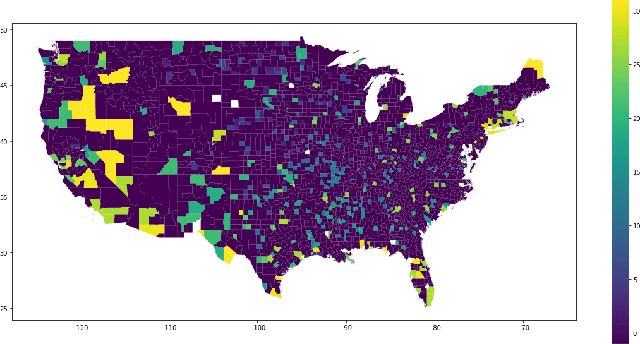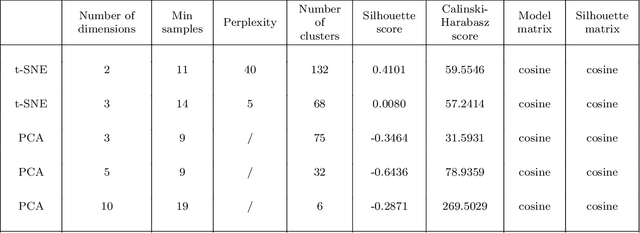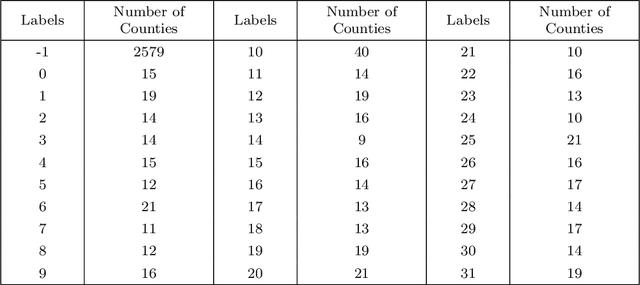Cooper Zhao
Clustering US Counties to Find Patterns Related to the COVID-19 Pandemic
Mar 19, 2023



Abstract:When COVID-19 first started spreading and quarantine was implemented, the Society for Industrial and Applied Mathematics (SIAM) Student Chapter at the University of Minnesota-Twin Cities began a collaboration with Ecolab to use our skills as data scientists and mathematicians to extract useful insights from relevant data relating to the pandemic. This collaboration consisted of multiple groups working on different projects. In this write-up we focus on using clustering techniques to help us find groups of similar counties in the US and use that to help us understand the pandemic. Our team for this project consisted of University of Minnesota students Cora Brown, Sarah Milstein, Tianyi Sun, and Cooper Zhao, with help from Ecolab Data Scientist Jimmy Broomfield and University of Minnesota student Skye Ke. In the sections below we describe all of the work done for this project. In Section 2, we list the data we gathered, as well as the feature engineering we performed. In Section 3, we describe the metrics we used for evaluating our models. In Section 4, we explain the methods we used for interpreting the results of our various clustering approaches. In Section 5, we describe the different clustering methods we implemented. In Section 6, we present the results of our clustering techniques and provide relevant interpretation. Finally, in Section 7, we provide some concluding remarks comparing the different clustering methods.
 Add to Chrome
Add to Chrome Add to Firefox
Add to Firefox Add to Edge
Add to Edge